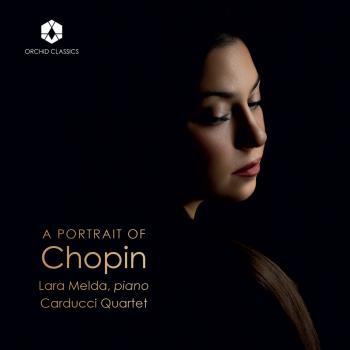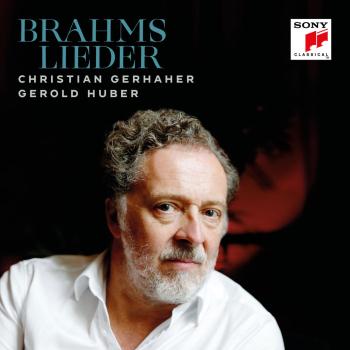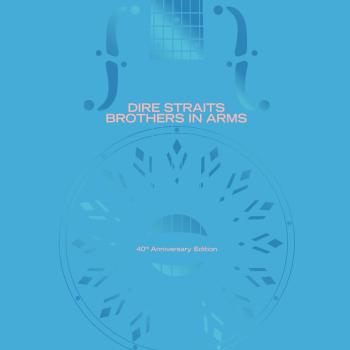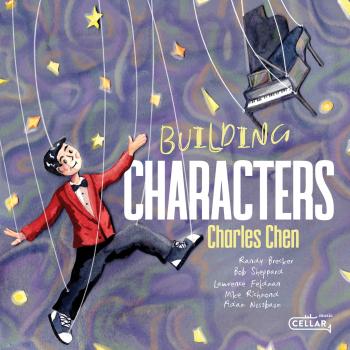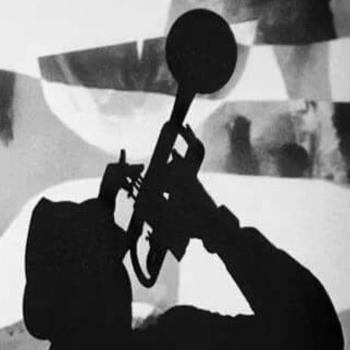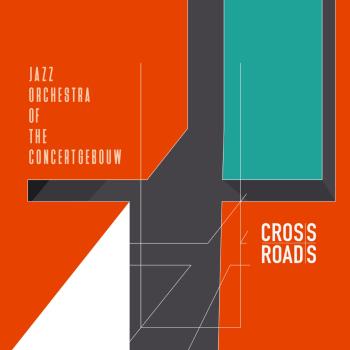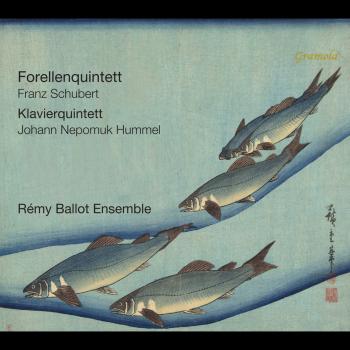
Satie: Piano Music, Vol. 4 Noriko Ogawa
Album info
Album-Release:
2021
HRA-Release:
04.06.2021
Label: BIS
Genre: Classical
Subgenre: Instrumental
Artist: Noriko Ogawa
Composer: Erik Satie (1866-1925)
Album including Album cover Booklet (PDF)
- Erik Satie (1866 - 1925): Mercure, Scene 1 (Version for Solo Piano):
- 1 Satie: Mercure, Scene 1 (Version for Solo Piano): No. 1, Ouverture 01:11
- 2 Satie: Mercure, Scene 1 (Version for Solo Piano): No. 2, La nuit 01:04
- 3 Satie: Mercure, Scene 1 (Version for Solo Piano): No. 3, Danse de tendresse 02:15
- 4 Satie: Mercure, Scene 1 (Version for Solo Piano): No. 4, Signes du zodiaque 00:39
- 5 Satie: Mercure, Scene 1 (Version for Solo Piano): No. 5, Entrée et danse de Mercure 01:20
- Mercure, Scene 2 (Version for Solo Piano):
- 6 Satie: Mercure, Scene 2 (Version for Solo Piano): No. 6, Danse des Grâces 01:12
- 7 Satie: Mercure, Scene 2 (Version for Solo Piano): No. 7, Bain des Grâces 01:05
- 8 Satie: Mercure, Scene 2 (Version for Solo Piano): No. 8, Fuite de Mercure 00:22
- 9 Satie: Mercure, Scene 2 (Version for Solo Piano): No. 9, Colère de Cerbère 00:23
- Mercure, Scene 3 (Version for Solo Piano):
- 10 Satie: Mercure, Scene 3 (Version for Solo Piano): No. 10, Polka de lettres 01:04
- 11 Satie: Mercure, Scene 3 (Version for Solo Piano): No. 11, Nouvelle danse 00:53
- 12 Satie: Mercure, Scene 3 (Version for Solo Piano): No. 12, Le chaos 00:29
- 13 Satie: Mercure, Scene 3 (Version for Solo Piano): No. 13, Rapt de Proserpine 01:13
- La belle excentrique (Version for Solo Piano) [Excerpts]:
- 14 Satie: La belle excentrique (Version for Solo Piano) [Excerpts]: II. Marché franco-lunaire 01:46
- 15 Satie: La belle excentrique (Version for Solo Piano) [Excerpts]: III. Valse du mystérieux baiser dans l'oeil 02:32
- Les pantins dansent:
- 16 Satie: Les pantins dansent (Arr. for Solo Piano) 01:20
- 17 Satie: Les pantins dansent (First Version) [Arr. for Solo Piano] 01:38
- Erik Satie:
- 18 Satie: Carnet d'esquisses et de croquis: No. 18, Petit prelude de "La mort de Monsieur Mouche" 01:23
- Le piège de Méduse:
- 19 Satie: Le piège de Méduse: No. 1, Quadrille 00:39
- 20 Satie: Le piège de Méduse: No. 2, Valse 00:43
- 21 Satie: Le piège de Méduse: No. 3, Pas vite 00:34
- 22 Satie: Le piège de Méduse: No. 4, Mazurka 00:30
- 23 Satie: Le piège de Méduse: No. 5, Un peu vif 00:14
- 24 Satie: Le piège de Méduse: No. 6, Polka 00:27
- 25 Satie: Le piège de Méduse: No. 7, Quadrille 00:20
- Jack-in-the-Box (Pantomime Ballet):
- 26 Satie: Jack-in-the-Box (Pantomime Ballet): I. Prélude 02:28
- 27 Satie: Jack-in-the-Box (Pantomime Ballet): II. Entr'acte 02:24
- 28 Satie: Jack-in-the-Box (Pantomime Ballet): III. Final 02:26
- Relâche, Act I (Version for Solo Piano):
- 29 Satie: Relâche, Act I (Version for Solo Piano): No. 1, Ouverturette 01:14
- 30 Satie: Relâche, Act I (Version for Solo Piano): No. 2a, Projectionnette 00:40
- 31 Satie: Relâche, Act I (Version for Solo Piano): No. 2b, Rideau 00:22
- 32 Satie: Relâche, Act I (Version for Solo Piano): No. 3, Entrée de la femme 01:12
- 33 Satie: Relâche, Act I (Version for Solo Piano): No. 4, Musique entre l'entrée de la femme 00:41
- 34 Satie: Relâche, Act I (Version for Solo Piano): No. 5, Entrée de l'homme 00:43
- 35 Satie: Relâche, Act I (Version for Solo Piano): No. 6, Danse de la porte tournante 01:06
- 36 Satie: Relâche, Act I (Version for Solo Piano): No. 7, Entrée des hommes 00:44
- 37 Satie: Relâche, Act I (Version for Solo Piano): No. 8, Danse des hommes 00:42
- 38 Satie: Relâche, Act I (Version for Solo Piano): No. 9, Danse de la femme 01:13
- 39 Satie: Relâche, Act I (Version for Solo Piano): No. 10, Final 01:08
- Erik Satie:
- 40 Satie: Cinéma (Version for Solo Piano) 16:19
- Relâche, Act II (Version for Solo Piano):
- 41 Satie: Relâche, Act II (Version for Solo Piano): No. 11, Musique de rentrée 01:01
- 42 Satie: Relâche, Act II (Version for Solo Piano): No. 12, Rentrée des hommes 01:05
- 43 Satie: Relâche, Act II (Version for Solo Piano): No. 13, Rentrée de la femme 01:55
- 44 Satie: Relâche, Act II (Version for Solo Piano): No. 14, Les hommes se dévêtissent 00:38
- 45 Satie: Relâche, Act II (Version for Solo Piano): No. 15, Danse de l'homme et de la femme 01:17
- 46 Satie: Relâche, Act II (Version for Solo Piano): No. 16, Les hommes regagnent leur place 01:02
- 47 Satie: Relâche, Act II (Version for Solo Piano): No. 17, Danse de la brouette 01:26
- 48 Satie: Relâche, Act II (Version for Solo Piano): No. 18, Danse de la couronne 01:01
- 49 Satie: Relâche, Act II (Version for Solo Piano): No. 19, Le danseur dépose la couronne 00:58
- 50 Satie: Relâche, Act II (Version for Solo Piano): No. 20, La femme rejoint son fauteuil 01:23
- 51 Satie: Relâche, Act II (Version for Solo Piano): No. 21, Petite danse finale. La queue du chien 00:42
Info for Satie: Piano Music, Vol. 4
For the fourth instalment in her acclaimed Satie cycle, Noriko Ogawa has gathered music written for the stage – from the pantomime Jack in the Box (1899) to the ballet Relâche (1924) – one of Satie’s last works. Several of the pieces exist in different scorings, but the piano versions heard here are all Satie’s own. Throughout the programme, what comes across strongly is the influence of music hall and cabaret; composed in 1900, Prélude de « La mort de Monsieur Mouche » even offers a hint of the ragtime, one of the first appearances of the genre in European music.
Stage projects are as a rule collaborative efforts, and among Satie’s collaborators were some of the leading names of the art world at the time, including Jean Cocteau, Picasso, the Dadaist poet and painter Francis Picabia, and film director René Clair. Satie’s score Cinéma has been called one of the first synchronized film scores.
Noriko Ogawa, piano (Erard-Flügel 1890)
Noriko Ogawa
has achieved considerable renown throughout the world since her success at the Leeds International Piano Competition. Noriko’s “ravishingly poetic playing” (Telegraph) sets her apart from her contemporaries and acclaim for her complete Debussy series with BIS Records (“If you like your Debussy to sound like the musical equivalent of a chilled white wine, Noriko Ogawa is the pianist for you” Roger Vignoles, BBC Radio 3, CD Review), confirms her as a fine Debussy specialist, and her Images Book I and II were chosen as the top recommendation ‘exquisite delicacy’ by Stephen Walsh, BBC Radio 3’s CD Review, January 2014. Noriko’s next recording for BIS records is of solo piano music by Eric Satie.
Noriko appears with all the major European, Japanese and US orchestras including recent and forthcoming performances with the Polish National Radio Symphony Orchestra, Tchaikovsky Symphony Orchestra of Moscow Radio, BBC Philharmonic Orchestra, Czech National Symphony Orchestra and the Nagoya Philharmonic Orchestra, as well as the BBC Symphony Orchestra for the world premiere of Richard Dubugnon’s Piano Concerto. Noriko made her BBC Proms debut in August 2013 with the BBC Concert Orchestra (conducted by Barry Wordsworth) and appeared again in 2014 with the Endymion Ensemble. She has been appointed Vice President of the St Cecilia Orchestra in Ripon, Honorary Patron of the Ipswich Orchestral Society and, from January to June 2012, was the Artistic Director for the Reflections on Debussy Festival, hosted by BBC Philharmonic and Bridgewater Hall. In 2015 she continued her relationship with the Bridgewater Hall as Associate Artist for Ravel and Rachmaninov Festival alongside Peter Donohoe.
Noriko is also renowned as a recitalist and chamber musician. Notable chamber projects include a tour of Japan with the Berlin Philharmonic Wind Ensemble and the leader of the Vienna Philharmonic, Rainer Honeck. With her piano duet partner Kathryn Stott, Noriko has performed Malcolm Arnold’s Concerto for Two Pianos (Three Hands) at the 2013 BBC Proms, has toured in Japan and given premieres of Graham Fitkin’s double piano concerto Circuit. Noriko has also collaborated with Steven Isserlis, Isabelle van Keulen, Martin Roscoe, Michael Collins and Peter Donohoe.
As an advocate of commissioning, Noriko has been involved in numerous premieres including works by Richard Dubugnon, Takemitsu, Graham Fitkin and Dai Fujikura, as well as ‘Le Tombeau de Rachmaninov’, specially written for Noriko by eight composers and premiered at Manchester’s Bridgewater Hall. In addition to recording and performing, Noriko is a sought-after presenter, both on the radio and on television, recently appearing as a piano expert on the BBC3 coverage of the Leeds Piano Competition, and on BBC Worldwide in ‘Visionaries’ as an advocate for Takemitsu and in programmes for NHK and Nippon Television. As an adjudicator, she regularly judges the BBC Young Musician of the Year Competition, Munich International Piano Competition, Honens International Piano Competition and the Scottish International Piano Competition. Noriko has been appointed as Chairperson of the Jury for Japan’s prestigious 10th Hamamatsu International Piano Competition in 2018.
In Japan, Noriko acts as artistic advisor to the MUZA Kawasaki Symphony Hall in her hometown. In 1999, the Japanese Ministry of Education awarded her their Art Prize in recognition of her outstanding contribution to the cultural profile of Japan throughout the world and she has also been awarded the Okura Prize for her outstanding contribution to music in Japan. As a writer, Noriko has completed her first book (published in Japan) and her Japanese translation of Susan Tomes’s book Out of Silence – a pianist’s yearbook has been reprinted due to popular demand, with the Japanese music magazine Ongaku no tomo saying “Ogawa translates Tomes’ elegant composition into very beautiful Japanese with deep empathy and affection” (August 2012).
Noriko is passionate about charity work, particularly after the earthquake and tsunami which devastated Japan in early 2011. Since the earthquake she has raised over £40,000 for the British Red Cross Japan Tsunami Fund and is keen to keep fundraising. Noriko also founded Jamie’s Concerts a series for autistic children and parents and is a Cultural Ambassador for the National Autistic Society.
Noriko lives with her partner Philip and their cat Sox. When not practising she enjoys writing and cooking for friends.
Booklet for Satie: Piano Music, Vol. 4

